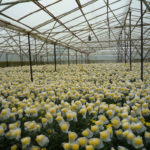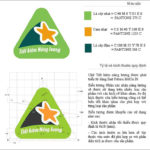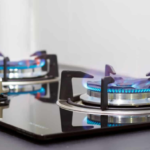Calculating the Right AC Capacity and Room Size
The discrepancy between the capacity of an air conditioner and the room size is the primary reason for skyrocketing electricity bills. Whether it’s “excessive” or “insufficient,” it’s a waste of energy and money.
Calculate the Right AC Capacity for Your Room Size
Ensure the capacity of your AC unit matches your room size to avoid unnecessary waste. Upgrading, replacing, or relocating the unit may be necessary to achieve efficiency. While the initial investment may seem high, it will pay off in the long run by reducing energy waste over many months.
Tips to Ease the Burden on Your AC
Increasing the temperature by just 1°C can save over 3% of energy.
Reduce unnecessary heat sources to maximize savings. Here’s how:
– Install your AC on the cooler sides of your home, such as the east or north sides, where direct sunlight is minimal.
– Keep the outdoor unit away from heat sources, moisture, fumes, and corrosive chemicals. If multiple units are installed close together, ensure the hot air doesn’t circulate from one unit to another.
– Maintain a stable room temperature and use curtains to prevent heat absorption. Turn off unnecessary lights when the AC is running.
– Combine your AC with a fan. It helps push hot air upwards and cool air downwards, creating a stronger wind chill effect without lowering the temperature.

Smart Ways to Turn Your AC On and Off
Avoid setting extremely low temperatures and maintaining them for extended periods. Keep the temperature above 25°C for optimal cooling and energy efficiency, suitable for Vietnam’s climate.
A 3-5°C difference between indoor and outdoor temperatures is reasonable and cost-effective, preventing heat shock when going outside.
Only turn off your AC if you plan to be away for an hour or more. Frequent on and off cycles consume more energy due to the high power required for startup.
Lower temperatures are unnecessary at night as outdoor temperatures also drop. Set a timer to turn off the AC automatically. Our bodies also require higher temperatures at night.
After turning off the AC with the remote, switch off the circuit breaker. Otherwise, the unit will continue to use electricity, leading to unexpected costs.
Regularly clean the AC filter to save between 5-7% of energy.
Don’t Confuse “Cool” and “Dry” Modes
“Cool” mode is for cooling (usually indicated by a snowflake symbol), while “Dry” mode is for dehumidification (often shown as a water droplet). “Dry” mode consumes less energy as it removes moisture from the room, making it comfortable without cooling. In contrast, “Cool” mode demands higher power as it pushes heat out of the room.
Many people choose “Dry” mode to save energy, but the right choice depends on the humidity level. “Dry” mode is effective when humidity is high, but on hot days, it can make you feel uncomfortable and dry your skin.
On hot and humid days, with humidity above 60%, “Dry” mode is suitable. Conversely, in dry and hot conditions, with humidity below 50%, opt for “Cool” mode. Smartphone apps can provide real-time humidity data for your area.

Tips for Efficient Use of Inverter ACs
Inverter ACs are marketed as energy-efficient, but this advantage is most noticeable when the unit runs continuously for around 8 hours daily, resulting in significant monthly savings. However, in cases of irregular and short-term use with frequent on and off cycles, they may consume more energy than conventional units.
When purchasing an AC, compare the Energy Efficiency Ratio (EER) of different models. Modern ACs are required to display their EER, and those with higher ratings consume less energy.
Mai Anh







































